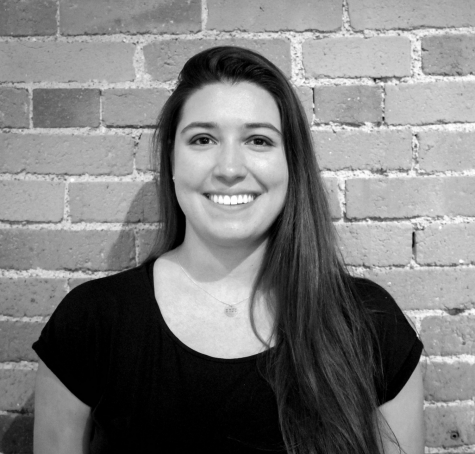Understanding Islam in the U.S.
October 24, 2017
In American society today, there are many strong opinions and beliefs about the religion of Islam. With the fear of terrorism constantly being a driving factor in American’s understanding of what Islam is about, Muslim author, advocate and practicing attorney Qasim Rashid hopes to give a clearer picture of what his faith means to him and also in the wider scale of the United States.
Rashid’s lecture, “Islam and America: What Media Won’t Discuss,” was held Oct. 23 in Walker Recital Hall as part of the Charlene M. Tanner Speaker Series.
Rashid’s main point in his lecture was to create a better understanding of what Islam is and how it has been distorted in the past and in recent years. He began with a discussion on what privilege means and how to build a better understanding of how it permeates our culture.
He recalled the first time he was blatantly discriminated against in a workplace because of the color or his skin and his religion. After having a successful internship and hopes of a job, he was rejected by the company.
“I was heartbroken,” he said. “Not having to censor your faith because you are the majority faith, that is what we call privilege.”
Rashid’s desire for wanting to become a lawyer stemmed from the need to celebrate diversity and represent those who are marginalized.
Rashid used America’s turbulent history to put different forms of discrimination and bigotry in the context of Muslims today. He stated that he is a proud American citizen, but this pride also comes in recognizing our history and learning from it.
The solution Rashid urges is for the media and the average American to fight this history with education and understanding. He referenced the religious beliefs of Islam and the life of the Holy Prophet Muhammad as example for how Americans can turn the tide of bigotry, supremacy and misunderstanding.
RISE — Re-educating, Identifying, Serving and Elevating — became Rashid’s acronym to represent four ways Americans can better foster understanding.
Re-educating people with real life situations and conversations teaches the realities that are often skewed by the media. Rashid urged the audience to read about and have conversations with people who have views that are different that your own so that they may be better understood.
With the connotation of “jihad” as being a terrorist ideal, Muslims are constantly having to re-educate about the true meaning of the “struggle against evil” and that the actions of one do not represent the whole. Rashid helped to create a website that he encouraged the audience to visit that demonstrates credible information on Islamic culture, religion and history, called TrueIslam.com.
Identifying the issues and comfort zones we possess is the hardest step in this process to Rashid. Once people recognize what they comfort zone is and how to step out of it, change can be made. By serving others and treating them how we would wish to be treated, the door is opened to the fourth and most important step in Rashid’s process.
Elevating those who are marginalized helps all people find that common human ground. This does not mean to speak for these people as if one knows more than their subject area or personal background, but to open and encourage a platform for conversation, education and understanding.
Rashid ultimately took on a subject of which he is extremely knowledgeable, in the context of America today, making his experiences raw, informative, humorous and eye-opening on a personal and global scale.
This lecture by Rashid was organized by the Diversity & Inclusion Task Force Committee on Employee Awareness. The task force seeks to increase awareness of diversity and create a conversation about how to celebrate and incorporate all types of diversity.
“We were very happy with Qasim’s visit,” said Ryan Palm, associate vice president for Advancement. “Student feedback was extremely positive and many members of the local community also stayed behind to thank Qasim for his wonderful lecture.”

